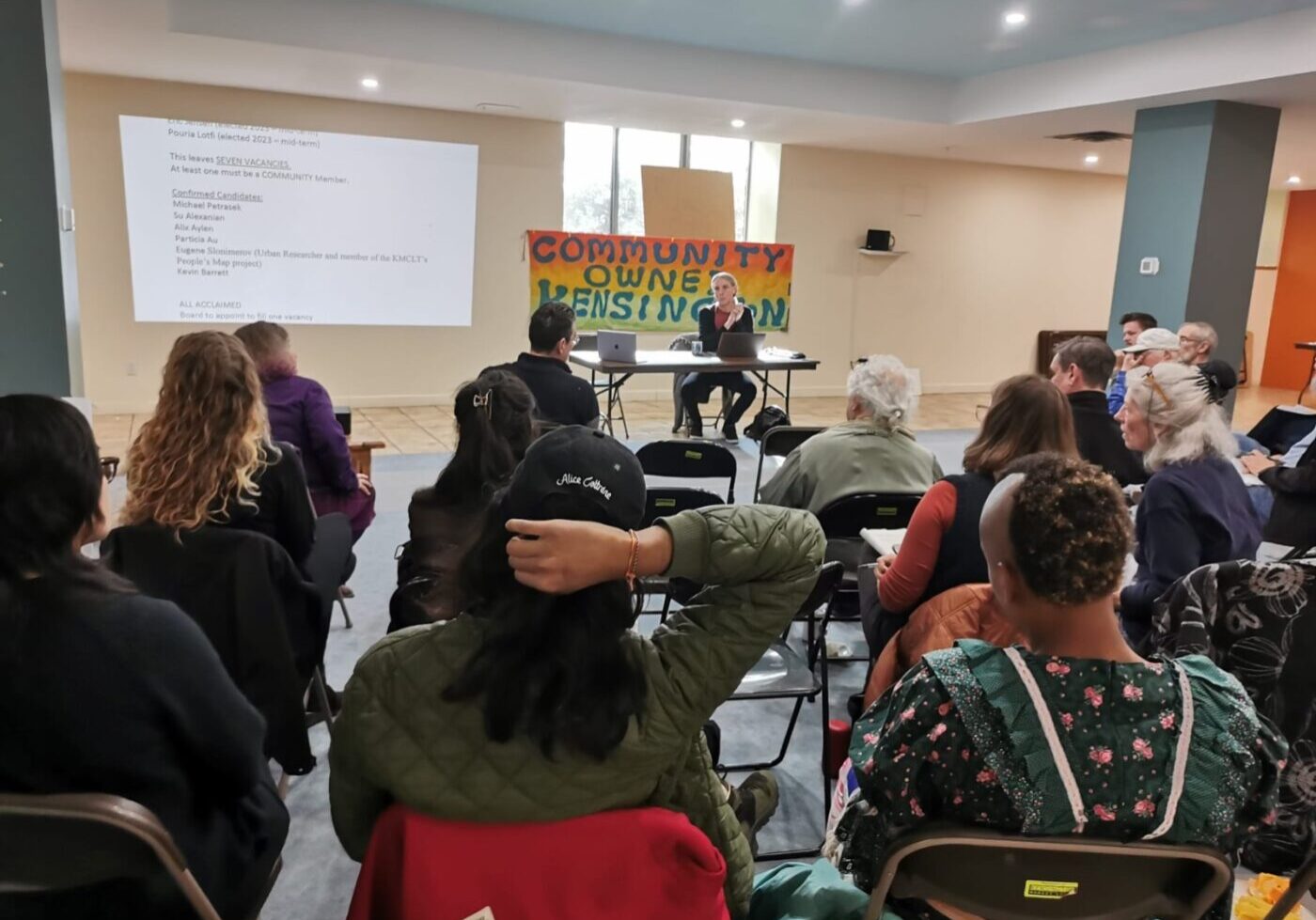THE GREEN LINE
DOCUMENTERS NOTES
How this community group prevents Kensington Market from becoming condo central
On Nov. 9, the Kensington Market Community Land Trust (KMCLT) hosted its annual general meeting (AGM) to update members on affordable housing and community bond projects in the neighbourhood.

The Kensington Market Community Land Trust Annual General Meeting was held on Nov 9th at 160 Baldwin St.


Sebastian Tansil
Caring mastermind who loves spending quality time with friends and family. Empathetic and precise economist by training. Loves amber yellow as it reminds him of people dearest to him.
Nov. 10, 2024
These city meeting notes are part of Documenters Canada. Learn more about our program here.
Editor's note: The author of this documentation is a member of the Kensington Market Community Land Trust.
Kensington Market is known in downtown Toronto for its old houses that host both cool local businesses and affordable rental units.
Have you ever found yourself wondering: how is it possible for such a centrally located place not to become condo central?
This is partly due to the work of the Kensington Market Community Land Trust (KMCLT), a nonprofit that buys and manages properties to achieve its mission of keeping housing affordable, and protecting the neighbourhood from rapid changes driven by private investors.
On Nov. 9, the KMCLT hosted its annual general meeting (AGM) to discuss key developments over the last year.
Earlier this summer, the City of Toronto announced that a new affordable housing project on 35 Bellevue Ave. will be leased to and operated by KMCLT and St. Clare’s Multi-faith Housing Society. Kevin Barrett, a co-chair of KMCLT, said that the construction of the building, which will provide 78 affordable housing units, will be done over the next year and residents are be expected to move in by November 2025.
Zack Bradley, co-director of KMCLT, shared that its community bond campaign that kicked off in March of this year has already raised close to a million dollars. A community bond is an interest bearing loan that nonprofits like KMCLT issues to raise money for projects that benefit the community.
KMCLT is also looking to receive additional funds through the Multi-Unit Residential Acquisition (MURA) program, a city fund to support non-profit purchases of at-risk private market rental housing to secure permanently affordable housing. As a result, the land trust is now actively looking to acquire its next building in the market.
What does our Documenter have to say?
I have been renting a home in the Kensington Market neighbourhood for over five years now and the rent has been affordable for me and my housemates so far due to the provincial rent control guidelines. However, my landlord has threatened to evict us from our home on Lipincott street several times. He tried to make us leave so he could move in his family members after we refused to pay above guideline rent increases. I have been successful so far in staying in our home by stating the law and calling his bluff. Unfortunately, my housemates and I don’t know if we'll be able to stay in the long term with the potential redevelopment of our home into a townhouse community. Community land trust models such as KMCLT provide neighbourhood residents like myself an opportunity to fight back against gentrification by keeping local lands in community hands. By managing property for community benefit in perpetuity, it could offer an ease of mind for residents who might otherwise constantly fear eviction in the speculative commercial real estate market.
Fact-Check Yourself
Sources and
further reading
Don't take our word for it —
check our sources for yourself.
Care about our city, but don't know how to make it better? Sign up for simple, step-by-step guides to solving problems in your neighbourhood — one small action at a time.